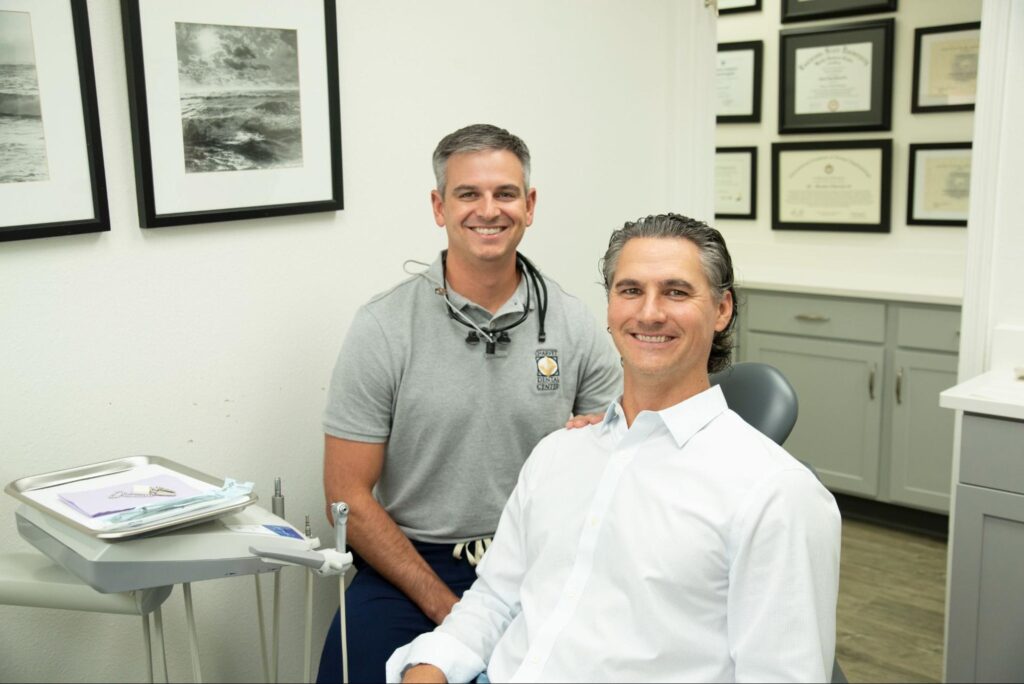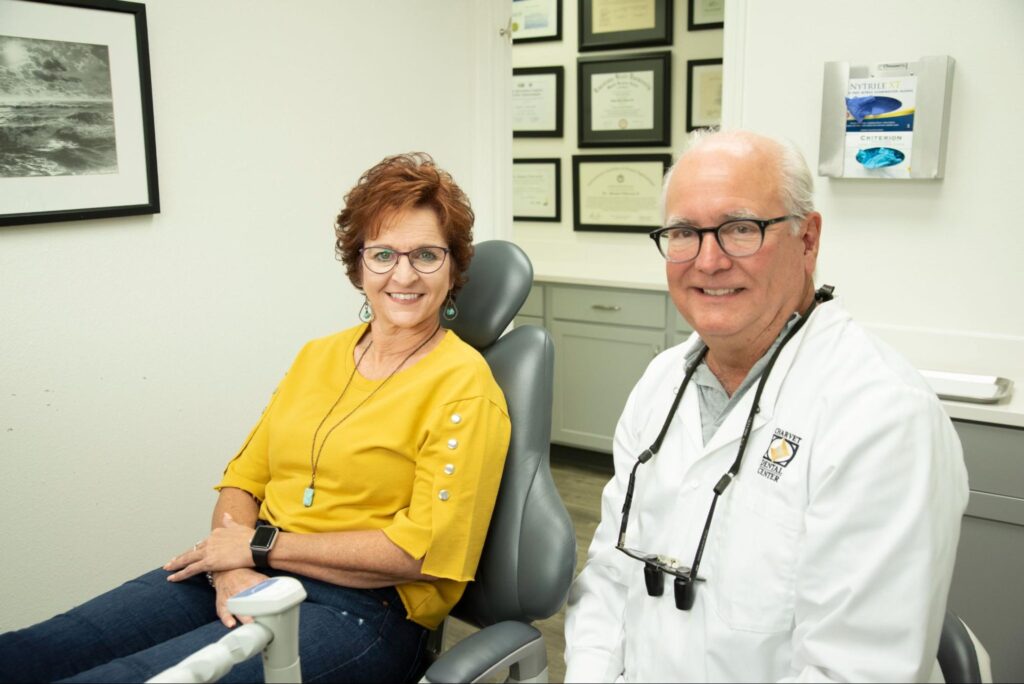The phrase “grinding your teeth” might make you cringe a bit—it’s an unpleasant sensation! However, you might be doing it frequently without even realizing it. Our Charvet Dental Center team wants to answer this question: What causes tooth grinding, and what are the available treatments?
What’s Bruxism?
Bruxism is the medical term for the habitual and involuntary grinding or clenching of teeth, often occurring during sleep. If it happens while you’re awake, it’s known as awake bruxism. However, it tends to be more problematic during sleep when you can’t control it. Here are the main factors:
- Grinding your teeth involves clenching your teeth and moving them back and forth.
- Clenching can occur without the grinding but still causes painful symptoms.
- Nighttime grinding is often loud enough for sleeping partners to hear.
Causes and Symptoms of Bruxism
Several factors contribute to bruxism, including stress, anxiety, sleep disorders, and various lifestyle factors. Common symptoms you might experience with this condition include:
- Tooth pain or sensitivity
- Acute or chronic headaches,
- Facial muscle discomfort
- Disrupted sleep patterns
- Damage to tooth enamel or restorations like fillings or crowns
- Chipped or flattened teeth
- Jaw pain or joint disorders
- Gum recession or gum disease
- Earaches
A lot of these symptoms might seem like they’re occurring without any apparent cause prior to an official diagnosis. Some don’t appear to correlate directly with tooth grinding. But this diagnosis can help you solve one or more of these at once, vastly improving your quality of sleep and, in turn, your quality of life.
Diagnosing Bruxism
Dr. Charvet and Dr. Charvet Jr. employ several methods to diagnose bruxism and develop an effective treatment plan for you:
- X-rays provide a detailed view of your teeth and jawbone, revealing internal damage or misalignment.
- Bite analysis can show us how the upper and lower teeth fit together, helping to identify if an abnormal bite is contributing to your condition.
- Sleep monitoring can be helpful, especially in severe cases. This involves equipment that tracks muscle activity, jaw movements, and sounds made during sleep. Some patients may also undergo a professional sleep study. Bed partners can assist by reporting any sounds they hear.
- Medical history tells us a lot. For example, information including any medications you take or conditions like clinical anxiety, can help identify contributing factors to teeth grinding.
Treating Bruxism
This condition can be challenging to treat at times, but there are a number of effective approaches we might employ to help resolve your symptoms. Some of these can be completed by our team, while others might include referrals to experts in different fields.
- Night guards or Splints: One of the most common treatments involves creating custom night guards or splints (occlusal appliances) to protect your teeth. These devices act as barriers between your upper and lower teeth, preventing physical damage.
- Stress Management: Adopting stress management techniques, such as yoga, mindfulness, meditation, breathing exercises, or progressive muscle relaxation, can help reduce teeth grinding.
- Cognitive-Behavioral Therapy (CBT): CBT is a type of psychotherapy that focuses on changing behavioral patterns. Addressing psychological concerns with a professional can help manage bruxism, as the root cause can be mental as well as physical.
- Avoid Stimulants: Reducing the intake of alcohol, caffeine, and tobacco, especially in the hours before bedtime, can help minimize teeth grinding. If you must take a prescribed stimulant, curbing the consumption of these substances can alleviate symptoms.
- Sleep Health: Maintaining a regular sleep schedule and a calming bedtime routine can improve sleep quality and reduce bruxism. Avoid exposure to screens before sleeping.
- Muscle Relaxants: A professional might prescribe muscle relaxants for a short period to reduce muscle tension associated with grinding.
- Dietary Changes: Adopting a soft diet and avoiding hard and crunchy foods can sometimes provide relief from bruxism symptoms.
- Support Groups: Sharing experiences with others who have bruxism can be beneficial. Support groups or online forums can offer a sense of community and strategies for managing the condition.
- Physical Therapy: Techniques such as massage or jaw exercises can help to relax muscles and alleviate tension.
- Regular Dental Check-ups: Monitoring dental health and adjusting treatment as needed is important to prevent further damage.
Sleeping Soundly
Our doctors at Charvet Dental Center are invaluable for patients grappling with nighttime teeth grinding, especially as a common issue that many people experience unknowingly. Diagnosing and treating this condition in a timely manner is always a top priority. Schedule an appointment at our Metairie office, which has an all-star team of experts who are excited to help you knock out this annoying habit.
 Schedule Now
Schedule Now



